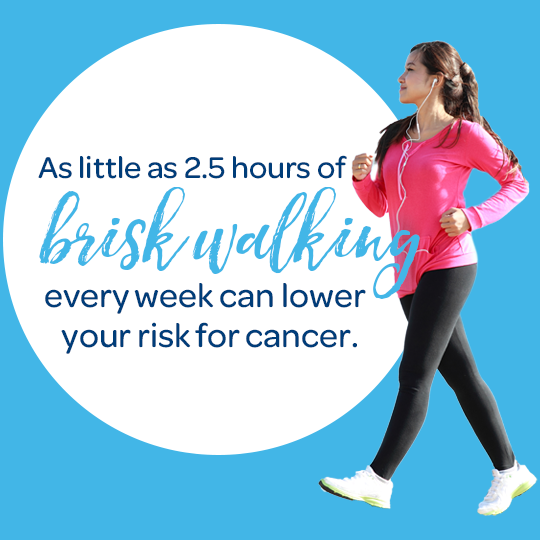8 Cancer Protection Power Tips
February is National Cancer Prevention Month, and we at ExperCARE want to make sure you have the information you need to make the healthiest choices to help protect you and your loved ones.
Did you know that it is believed that 50% of cancer cases in the U.S. could be prevented through adoption of healthier lifestyle habits?[i]
Here are 8 simple choices you can make daily that can significantly decrease your chances of developing many cancers:
1. Avoid Tobacco
While this isn’t new news, tobacco use remains common—despite evidence that smoking and chewing tobacco can lead to many types of cancer, including lung, throat and mouth. However, it isn’t enough to just avoid personal use; second hand smoke exposes you to the same cancer risks as smoking. Newer types of tobacco products such as electronic cigarettes and “vaping” may also expose you to carcinogens (cancer causing agents).
2. Get Regular Exercise
 Exercise has been proven to have a significant impact on your mood and sense of well-being as well as to protect against many different types of cancers, including colon, breast and endometrial (also called uterine cancer). [ii]
Exercise has been proven to have a significant impact on your mood and sense of well-being as well as to protect against many different types of cancers, including colon, breast and endometrial (also called uterine cancer). [ii]
- Regulates hormone levels and aids in digestion
- Helps prevent the buildup of body fat (obesity is a major risk factor for cancer)
As little as 2.5 hours of brisk walking every week can lower your risk for cancer.
3. Eat a Healthy Diet
Diet has a three-fold effect on cancer risk.
- It influences your body weight.
- Foods that are high in salt, sugar and saturated fat like processed foods, red meats, and sodas can increase the risk of cancer.
- Foods that contain high amounts of fiber and nutrients can lower the risk of cancer.
So if you replace options like burgers, fried chicken, pizza and coke with fruits, vegetables, legumes, fish and nuts, you can greatly reduce your risk for six or more types of cancer! [iii]
4. Choose to Be Alcohol-Free
Every type of alcohol increases the risk of colon, rectum, liver, breast, throat and mouth cancer—even red wine and lite beer. So in addition to avoiding empty calories and dangers related to impairment of judgement, saying no to alcohol can decrease your risk for a variety of cancers.[iv] If you do choose to drink, do so in moderation, which is defined as no more than two drinks per day for men and one drink per day for women.
5. Protect Yourself from the Sun
Skin cancer prevention is a hot topic for those of us lucky enough to live in the coastal empire. While we all love having fun in the sun, skin cancer is the most common type of cancer and the most easily prevented. Here’s how:
- Always use sunscreen with a minimum of SPF 30, even if you plan to be inside or driving much of the day
- Don’t forget to reapply hourly and after getting out of the water
- Stay inside or covered up when the sun’s rays are strongest (between 10 a.m. and 3 p.m.)
- Avoid tanning beds and sun lamps
6. Reduce Stress
While there is a growing body of evidence that suggests stress can increase the risk of cancer by lowering the body’s immune system,[v] it is more important to consider how stress contributes to unhealthy lifestyle choices. When we are stressed out, we often neglect exercise and self-medicate with unhealthy comfort foods, alcohol, and tobacco. There are many stress reduction routines, ranging from gentle exercises, yoga and meditation to positive thinking and therapy. Find what works for you and make it a part of your life by creating habits that will support your wellness.
7. Get Your Vaccinations
While there is no vaccination that will protect healthy people from ever contracting cancer, there are vaccines that can protect against diseases that often lead to cancer. The HPV vaccine can help prevent cervical, vaginal, vulvar and anal cancer. The Hepatitis B vaccine can help protect against liver cancer. For people who have or have had cancer, there are cancer treatment vaccines that can help prevent cancer from spreading or coming back.
8. Get Regular Screenings
Although we cannot prevent all cases of cancer, the earlier it is diagnosed and treated, the better the chances of a positive outcome and full recovery. Colon, rectal, breast and cervical cancer screenings save lives! Make sure that you follow your medical provider’s recommendations for screenings and encourage your loved ones to stay on top of theirs.




